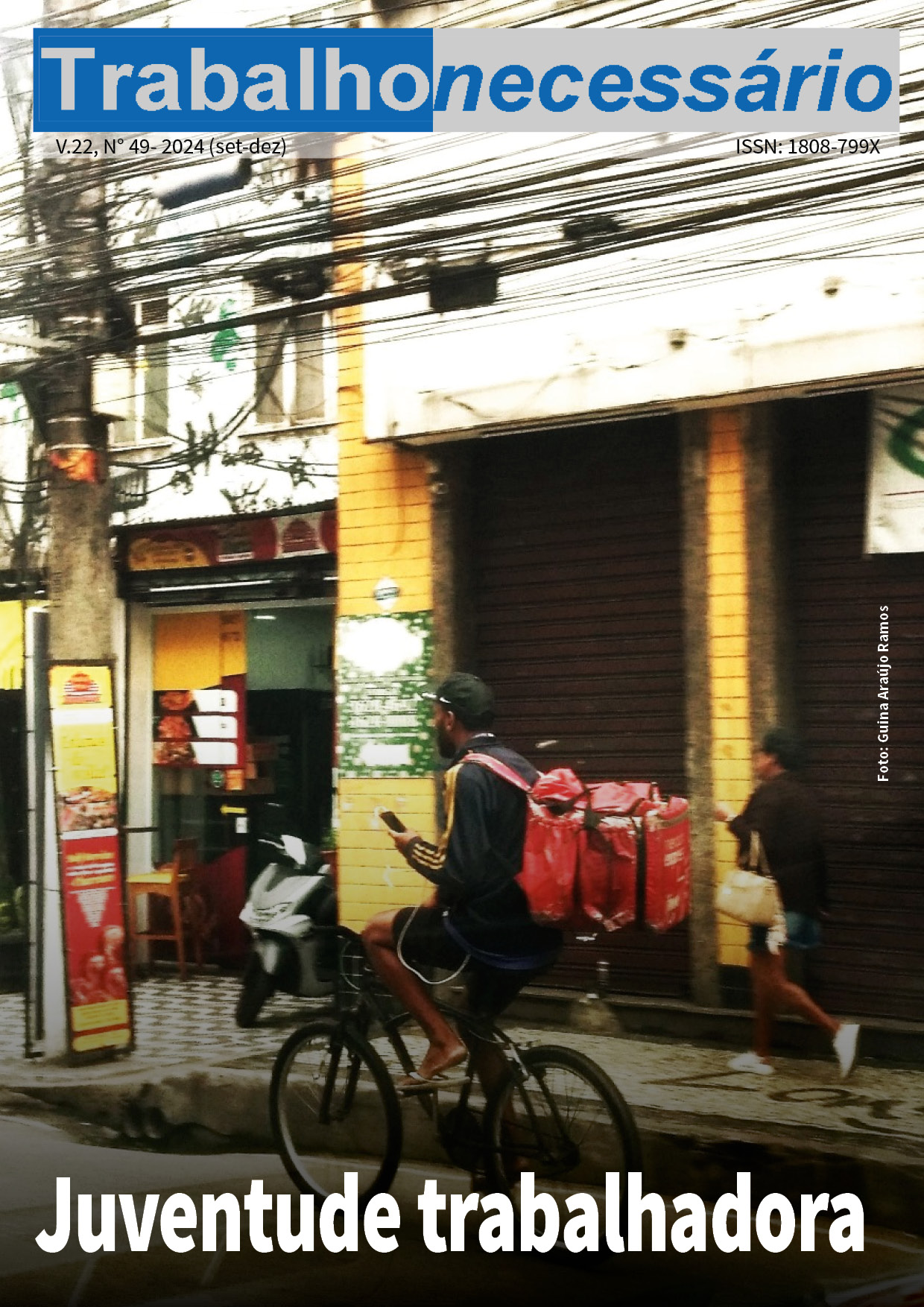A PEDAGOGIA DA JUVENTUDE: UMA REFLEXÃO SOBRE A DIALÉTICA DA PRÁXIS DO MOVIMENTO DE JUVENTUDE
DOI:
https://doi.org/10.22409/tn.v22i49.65058Abstract
This thesis aims to analyze the form and content of youth movements, in order to understand the educational processes that are forged with the fought social struggles, especially the resistance to neoliberalism in Brazil. The research was developed studying four youth organizations, nationwide, namely: Union of Communist Youth (UJC), Union of Socialist Youth (UJS), Popular Uprising of Youth (LPJ), and Together (Juntos). The work seeks to understand the role that youth movements assume in their historical construction, the place they occupy in the theory of political organization, their organizational characteristics, their generational, social, political, economic, cultural and educational aspects. The research methodology consisted of the theoretical perspective of Dialectical Historical Materialism (KOSIK, 2011; CHEPTULIN, 1982), in the field of qualitative research in education. Content analysis (BARDIN, 1997) and the data triangulation technique (TUZZO and BRAGA, 2016) were used for this research, based on document analysis, semi-structured interviews and the theoretical framework. The key authors for this study were: Ademar Bogo, Vladimir Lenin, Rosa Luxemburgo, Leon Trotsky, Maria da Gloria Gohn, Mário Margulis and Dermeval Saviani. It was concluded that youth movements represent an important renewing potential, as political and pedagogical subjects, while preserving a political trajectory, a historical accumulation of the theory of political organization present in Latin America. Furthermore, it was possible to analyze that it is in this movement of the construction of their tactics and strategies that youth organizations produce their pedagogy of social struggles. Considering youth pedagogy as a broad process of human formation, which is built in movement, connected to its historical time, the conjuncture and the expression of its force correlation.
Downloads
References
ANTUNES, R. As rebeliões de junho de 2013. In: GENTILI, Pablo. Consejo Latinoamericano de Ciencias Sociales. (OSA) Observatório Social de América Latina. Año XIV, n. 34, publicación semestral, noviembre de 2013.
BARDIN, L. Análise de conteúdo. Lisboa: Edições 70, 1977.
HARVEY, D. Cidades rebeldes: do direito à cidade à revolução urbana. São Paulo: Martins Fontes, 2014.
KATZ, C. Neoliberalismo, Neodesenvolvimentismo, Socialismo. 1ªEd. São Paulo: Expressão popular, 2016.
KOSIK, K. Dialética do concreto. Tradução de Célia Neves e Alderico Toríbio. 8. reimpressão. Rio de Janeiro: Paz e Terra, 2010.
TRIVIÑOS, A. N. S. Introdução à pesquisa em ciências sociais: a pesquisa qualitativa em educação. São Paulo: Atlas, 1987.
Published
How to Cite
Issue
Section
License
Copyright (c) 2024 Revista Trabalho Necessário

This work is licensed under a Creative Commons Attribution 4.0 International License.
DECLARAÇÃO DE DIREITO AUTORAL
Esta Revista é licenciada por Creative Commons (Atribuição 4.0 Internacional).
O processamento e a publicação dos trabalhos não implicam em nenhum tipo de custo para os autores.
Os autores têm autorização para assumir contratos adicionais separadamente, para distribuição não-exclusiva da versão do trabalho publicada nesta revista (ex.: publicar em repositório institucional ou como capítulo de livro), com reconhecimento de autoria e publicação inicial nesta revista.
DECLARACIÓN DE DERECHO AUTORAL
Esta revista es licenciada por Creative Commons (Atribuición 4.0 Internacional).
Lo procesamiento y la publicación de los trabajos no implica en ninguno tipo de costo para los autores.
Los autores tienen permiso para asumir contratos adicionales separadamente, para distribución no exclusiva de la versión del trabajo publicada en esta revista (ej.: publicar em repositorio institucional o como capítulo de un libro), con reconocimiento de autoria y publicación inicial en esta revista.
DECLARATION OF COPYRIGHT
The Journal is licensed by Creative Commons (Attribution 4.0 International).
Processing and publication of the work do not imply any cost to the authors.
The authors are allowed to take on additional contracts separately, non-exclusive distribution of the version of the paper published in this journal (ex.: publish in institutional repository or as a chapter of a book), with an acknowledgment of its initial publication in this journal.
Termo de Transferência de Direitos Autorais
Como condição para a submissão, os autores devem declarar a autoria do trabalho e concordar com o Termo de Cessão de Direitos Autorais, marcando a caixa de seleção após a leitura das cláusulas.
- Declaro que participei da elaboração do referido artigo / resenhas ou de outros elementos para a composição das seções da Revista TrabalhoNecessário-TN, em parte ou no todo; que não omiti qualquer ligação ou acordo de financiamento entre os autores e instituições ou empresas que possam ter interesses na publicação desse trabalho;
- Declaro tratar-se de texto original, isento de compilação, em parte ou na íntegra, de minha autoria ou de outro(os) autor (es) e que segui(mos) as diretrizes (normas e instruções) para os autores;
- Declaro que o texto não foi enviado a outra revista (impressa ou eletrônica) e não o será enquanto a possibilidade de sua publicação esteja sendo considerada pela Revista Trabalhonecessário;
- Declaro que transfiro os direitos autorais do trabalho especificado para a Revista TrabalhoNecessário, comprometendo-me a não reproduzir o texto, total ou parcialmente, em qualquer meio de divulgação (ex.: publicar em repositório institucional ou como capítulo de livro), impresso ou eletrônico, sem prévia autorização dessa Revista, com reconhecimento de autoria e publicação inicial nesta revista.
- Declaro que tenho conhecimento que a cessão do texto à Revista TrabalhoNecessário-TN é gratuita e, portanto, não haverá qualquer tipo de remuneração pela sua utilização.







